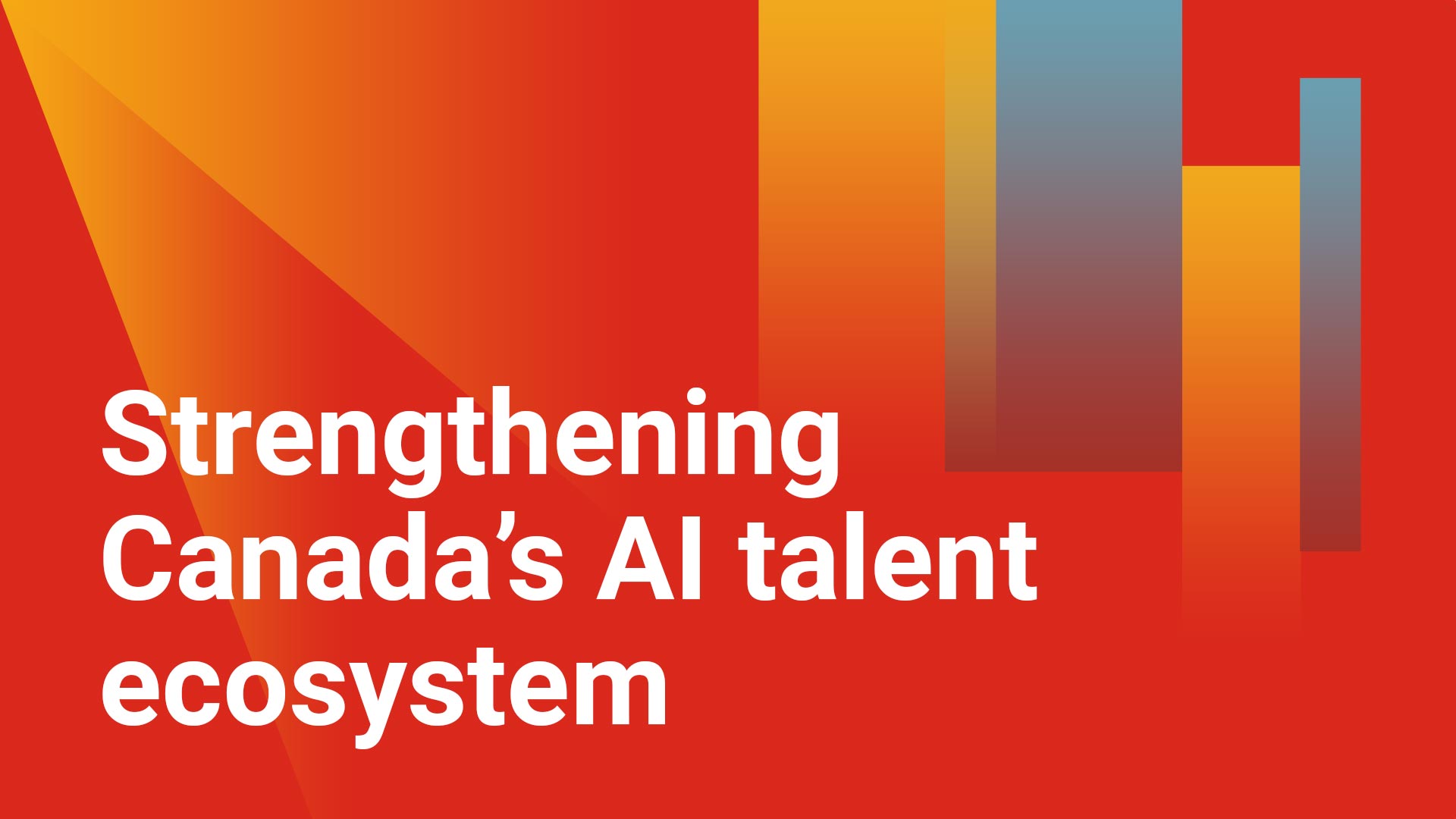By: Justine Brooks
16 Apr, 2025

The future of AI in Canada is shaped by visionary researchers who are advancing our knowledge of the world and of ourselves. The Canada CIFAR AI Chairs program, a cornerstone of the Pan-Canadian AI Strategy, enables talented researchers working at the forefront of AI to continue to pursue transformative ideas that advance science and have a positive social and economic impact for Canada. Now in its 8th year, the prestigious Canada CIFAR AI Chairs program welcomes new and returning chairs to the program.
Leaders in their fields, each Chair is affiliated with one of Canada’s three national AI institutes and each brings unique expertise and perspective to Canada’s vibrant AI research community. As part of the program, the Chairs receive funding for five years to support cutting edge research and train the next generation of AI talent while accessing Canada’s rich and collaborative ecosystem of researchers. By bringing together a diverse group of researchers and supporting the development of future talent, the program aims to foster innovation and efficient solutions to global challenges and drive cutting-edge AI research.
Joining the CIFAR community are:
Amii / University of Alberta
Mila
The Chairs recently discussed with CIFAR the research they intend to pursue and the impact of the Canada CIFAR AI Chairs program.
Dieter Büchler: My research focuses on achieving true human-level robotics on physical, rich and dynamic tasks.
Abby Azari: I focus on the use of machine intelligence for scientific discovery in planetary science and space physics.
Mohamed Abdalla: My research area revolves around identifying and addressing the barriers to the responsible deployment of AI models in clinical settings and ensuring these models deliver utility.
DB: I want to show that optimizing the robotic body can help make skill-learning more efficient and apply these insights on physical systems.
AA: The future of planetary science and space physics is data rich as space exploration missions return troves of observations. I hope to utilize these data with automated methods and physical models to advance our understanding of planetary systems and space exploration.
MA: I am hoping to broadly guide and help Alberta Health Services leverage AI by improving the development and deployment pipeline. This effort will be a combination of supporting clinicians and researchers in applying existing AI techniques and developing new methods to address deployment hurdles.
DB: I look forward to fruitful discussions and collaborations with the brilliant researchers within the CIFAR ecosystem.
AA: The Canada CIFAR AI Chair provides sustained funding for tackling some of the hardest questions in AI for the natural sciences. I’m excited to join my colleagues across disciplines to solve these challenges.
MA: I’m looking forward to working with all of the great faculty at the University of Alberta, Amii Fellows, Canada CIFAR AI Chairs and hardworking students.
Rupam Mahmood: The Canada CIFAR AI Chair funding has been essential for my progress in continual learning, enabling a focus on vital long-term challenges that short-term funding cannot cover. For example, our recent Nature paper on plasticity loss in continual learning, which represents a significant stride in this emerging field, was four years in the making. This kind of sustained backing is pivotal for pushing long-term research.
Adam White: CIFAR funding has been critical for driving my research program, such as a new project using reinforcement learning to automatically adjust lighting to more effectively grow plants in a vertical farming setup. This requires a big team of students to do hardware, software, algorithm development and testing. CIFAR funding makes it possible to explore exciting new directions like this.
Csaba Szepesvari: The Canada CIFAR AI Chair funding has had a significant impact on my research program. It allowed me to expand my group, support more postdoctoral researchers and provide students with more dedicated research time by reducing their reliance on teaching assistantships. This has led to a faster research pace, more ambitious projects and a broader exploration of ideas that would have been harder to pursue under tighter resource constraints.
Lili Mou: Being a CIFAR AI Chair has provided numerous collaboration opportunities, including a project with Jackie Cheung, another Canada CIFAR AI Chair at McGill University, and Xiaodan Zhu, a professor at Queen’s University, on unsupervised parsing which won an Area Chair’s Award at the 2025 Association for Computational Linguistics conference.
Danilo Bzdok: The deep discussions and stimulating exchange of knowledge at CIFAR events allowed me to broaden my horizons – sparking insights that later translated into new research project endeavors. Through such interactions, I have published with Konrad Kording, Co-Director of the CIFAR Learning in Machines & Brains program. I also had the opportunity to publish high-profile papers with Lucina Uddin, CIFAR Azrieli Global Scholar in the Brain, Mind & Consciousness program. CIFAR enabled me to engage with strong scientists nationally and internationally and gave me a sense of belonging to the AI community.
Nathan Sturtevant: The opportunity to advance the state-of-the art in my field, and continued interactions and collaborations with fellow CIFAR chairs and Amii Fellows.
Rupam Mahmood: I am fully excited and committed to taking continual learning to the next level. While foundation models have opened new possibilities for AI, they do not yet learn continually or online. Enabling continual learning for both small and large models, particularly on small devices like phones or even microcontrollers, is the next big step, requiring long-term research and breakthroughs.
Adam White: I am excited to continue interacting with Canada CIFAR AI Chairs across Canada and for collaborations with the new Chairs being hired at the University of Alberta.